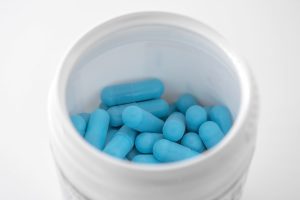Acne is reported to be one of the leading skin conditions worldwide, especially among young people. Acne vulgaris reportedly affects an estimated 50 million people in the United States yearly, and 85 percent are 12-24 years old.
This article is a comprehensive guide on using oral antibiotics for acne, causes of acne, alternative treatments like topical medications, and more. Continue reading to know more about this skin condition.
Home Remedies for Acne Treatment
Before scheduling an appointment with their dermatologist, many patients resort to home remedies for acne.
Home remedies can work in the short term if the problem is mild. But if the acne condition is severe, these lotions, masks, and foods may worsen it.
- Omega-3 fatty acids. Eat walnuts, chia seeds, salmon, sardines, and other oily fish.
- Exfoliate with a sugar and coconut oil mix.
- Follow a low glycemic diet rich in fruits and vegetables.
- Exercise regularly to balance hormones and reduce stress.
- Take brewer’s yeast orally.
- Use apple cider vinegar as a toner after washing your face.
Effective Treatments for Acne
More often than not, home remedies are not enough to treat severe acne conditions. That is where antibiotics and other oral acne medications like contraceptives come in.
What are Antibiotics?
As most people know, antibiotics are medications used to treat bacterial infections. However, they are not a good treatment for viral infections like the flue or sore throats, and neither do they work for mild bacterial infections.
Instead, doctors prescribe these meds when concerning bacterial conditions such as urine infections occur.
Antibiotics are generally used when:
- You could infect others
- The infection won’t ease on its own
- There is a risk of complications
They are not used to treat:
- Colds or flu
- Ear infections
- Chest infections
- Sore throats and derivations

Types of Oral Antibiotics for Acne
As their name suggests, these antibiotics are medications effective for treating acne. The most common ones are tetracycline and macrolides. Macrolides are usually prescribed to those who can’t take tetracyclines, such as pregnant women or children.
Oral Antibiotics for Acne: How It Works
These drugs either kill the bacteria or slowly suspend their growth. In addition, they interfere with bacteria reproduction, block their protein production, and directly attack their cells.
Antibiotics kill Propionibacteria acnes, the bacteria responsible for breakouts. They also reduce redness and inflammation. As a result, they are more effective than topical antibiotics, which are often not recommended alone for acne treatments.
Oral antibiotics are often taken in the morning and sometimes combined with benzoyl peroxide to reduce the likelihood of developing resistance to antibiotics.
Antibiotic Resistance and other safety issues
As the worldwide population uses antibiotics with more frequency, their effectiveness decreases. This is because bacteria get used to the antibiotics, and eventually, the medicines no longer fight these cells.
This situation happens when people overuse antibiotics without a good reason, such as to treat the flu or a mild infection. The more you take a medicine, the more dose you require next time you need to take the same medication.
Antibiotic resistance in acne treatment is a real threat, and patients should follow these directions to avoid resistance to antibiotics:
- Don’t take antibiotics, either orally or topically, unless prescribed by your doctor.
- Don’t interrupt the antibiotic treatment early, no matter how better you feel.
- Don’t skip days or extend the treatment unnecessarily and without doctor supervision.
- Don’t abuse medications in general. Use them only when you can’t deal with the discomfort or as instructed by a doctor.
When Should Antibiotics Be Used to Treat Acne?
Antibiotics are used to treat inflammatory acne when the skin condition is severe and previous treatments (e.g., Topical antibiotics) have not been effective. Dermatologists can combine oral medications with a topical agent for better results.
Suppose you have a history of trying to get rid of acne and failing. In that case, it’s in your best interest to discuss with your doctor the possibility of antibiotic treatment.
Some doctors claim that antibiotic treatment does not work for acne, as this skin condition is a mere inflammation and not an infection. However, studies show its effectiveness. If you are worried about taking antibiotics, share your concerns with your doctor or contact DrAlexa for more information.
What are the Possible Side Effects of Antibiotics?
As with any other treatment, antibiotics may have side effects. They are often mild and don’t cause distress, but it is always worth knowing the potential consequences before taking any medications.
Antibiotics may cause:
- Allergies to some patients. Tell your doctor whether you have ever reacted poorly to an antibiotic.
- Photosensitivity, especially for those taking doxycycline. It increases your risk for sunburn, so make sure to protect yourself from sun exposure.
- Gastrointestinal disturbance, including nausea and colicky pain.
- A reduction in the effectiveness of the oral contraceptive pill. It is unlikely, though still a possibility. Discuss with your doctor if you have worries about it.
Other Treatment Options for Acne
Other popular acne medicines include oral isotretinoin and contraceptives.
Some oral contraceptives help regulate hormones. They are effective for women who suffer from hormonal and genetic acne. Some female patients may take contraceptives for acne regulation for years and decades. Still, they are safe and do not interfere with fertility. They work by reducing androgens, male hormones related to testosterone, and increasing estrogens, female hormones that fight androgens.
Isotretinoin, also known as Roaccutane or Reticutan, is a practical yet risky acne treatment. Dermatologists should only prescribe isotretinoin when the patient meets specific health criteria. Some side effects include dry skin, itching, headaches, muscle pain, bleeding, or tiredness.
Isotretinoin works by decreasing the size of the sebaceous glands. These glands are responsible for creating oil and sebum, which block skin pores and cause breakouts. When this sebum production decreases, so does the frequency of the acne breakouts.
One thing to consider: More acne after treatment
You can experience more acne at first, both with contraceptive pills and isotretinoin. There is no need to be perturbed, as it’s one of the most common side effects. Sometimes the skin needs to break out before it can heal – Which means surfacing all the pimples and impurities.
Frequently Asked Questions (FAQs)
Suppose you have a history of trying to get rid of acne and failing. In that case, it’s in your best interest to discuss with your doctor the possibility of antibiotic treatment.
When the acne is mild, you can treat it at home with topical creams and medicines, homemade exfoliators, and a healthy lifestyle. On the other hand, you will need the help of a professional dermatologist if the situation is severe.
You can try homemade exfoliators made of sugar and coconut oil, taking omega-3 pills, or brewer’s yeast. Other treatments include using apple cider vinegar or aloe vera as serums.
Yes, especially when you have a history of trying to get rid of acne and failing. According to research, the antibiotics’ effectiveness in reducing acne severity has an acceptable safety profile. So when nothing else works, it’s advisable to give these medicines a try.
The best way to avoid this type of resistance is to take the medicines as prescribed, avoid skipping days or extending the treatment, and not use antibiotics unless prescribed.
Yes, as any other treatment. Oral antibiotics’ side effects are usually mild and go on their own a few days in. The most common ones are allergies, photosensitivity and sunburn risk, gastrointestinal problems, and interference with the contraceptive.
Discuss with your doctor anything that concerns you before initiating antibiotic treatment.
Antibiotics usually work quickly. You should notice an improvement about six weeks after beginning the treatment. However, it may differ from one patient to another. If more than four months go by and you don’t notice an improvement, schedule an appointment with your dermatologist to suggest a treatment change.
The best treatments for acne that do not require a prescription contain the following active ingredients:
- Benzoyl peroxide to remove excess oil and dead skin cells
- Adapalene to unblock pores and prevent breakouts
- Salicylic acid to clear pores
- Azelaic acid, which is an antibacterial ingredient
- Lactic acid and glycolic acid to calm inflamed skin and remove dead skin cells
You can find these ingredients on skincare routine products without a prescription. You will notice an overall improvement if your acne is mild.





